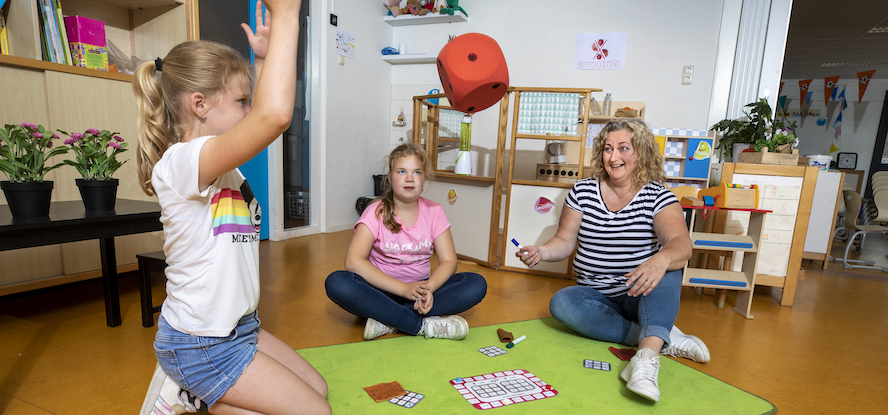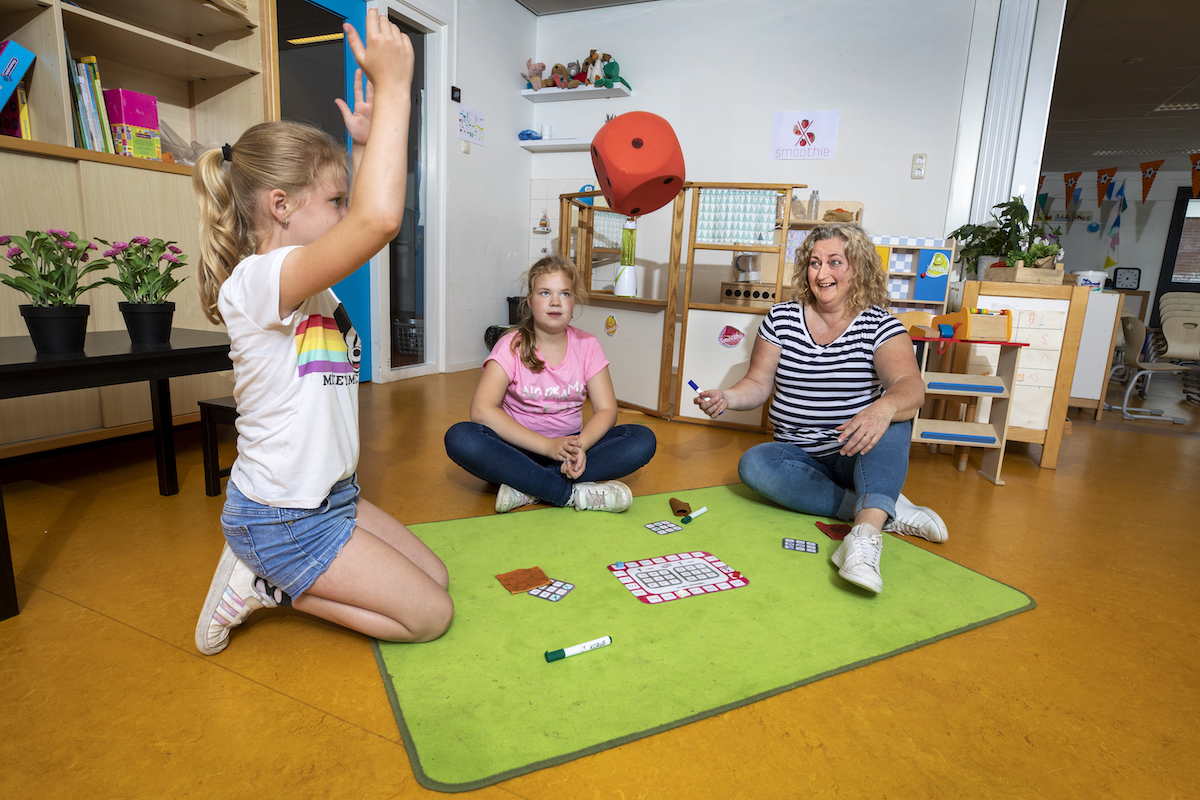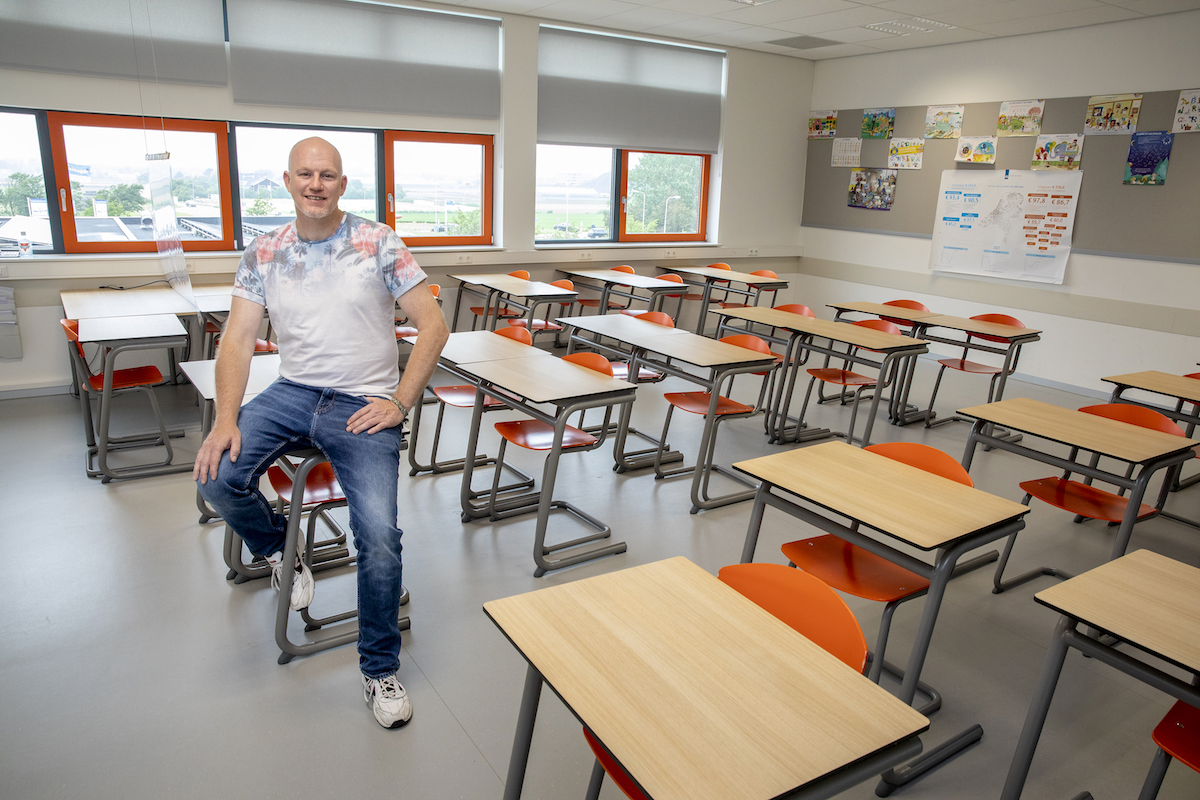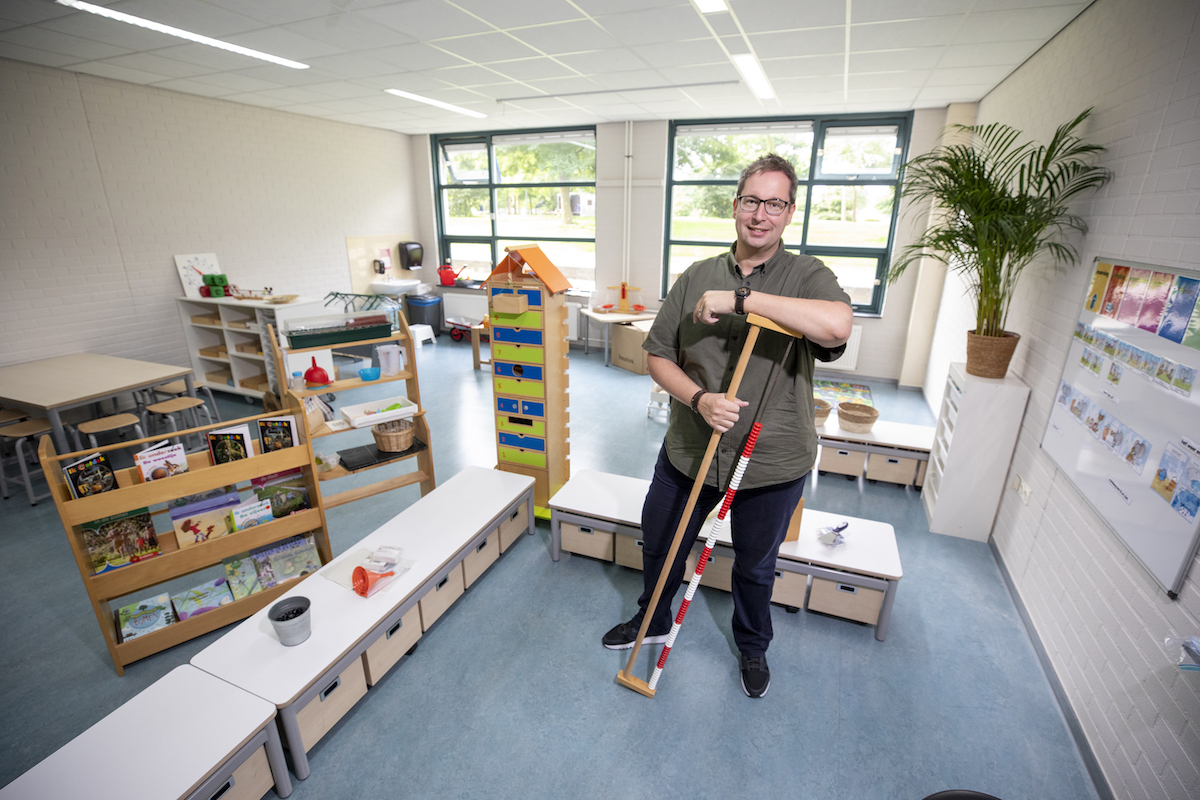Supporter brings about something in the mr
Participation councils have relatively few teaching assistants. Three of them explain why they do participate in the discussion and decide on the course of their school.

Picture: Fred van Diem
More and more educational support staff (oop'ers) are working in education, but too little attention is paid to their role and their working conditions, according to Rosalinde Stins, chief executive at the AOb: “You can't think of it that crazy or supporters do it. They work in primary education as teaching assistants, teacher assistants or janitors. In secondary education as a technical teaching assistant or schedule maker, or whatever. And they often also stand in front of the class if a hole unexpectedly falls somewhere.”
The latter is emphatically not the job of an oop'er, says Stins, but it does happen. “You can show up and jump in if necessary, but after that you're back on the sidelines. If a colleague is sick, you stand in front of the class, but then again at the copier.” Educational support staff are sometimes not completely part of the team, she notices. “But we run education together. An oop'er is also a specialist in his or her field.”
You may turn up and jump in if necessary, but then you are back on the sidelines. If a colleague is ill, you stand in front of the class, but then back to the photocopier
Where the job structure provides clarity for teachers, the situation is different for educational support staff. “It's about the tasks you perform and you often have to sound the alarm yourself. Teachers simply move up a scale automatically, oops have to arrange that themselves, but sometimes they don't even know that.”
Teachers are often more present in debates about education. “They are better organized and often work together. As an oop'er it is sometimes difficult to draw attention to your position on your own.”
There are no hard figures, but there are relatively few educational support staff on a participation council, Rosalinde Stins knows. Three of them tell here why they are active in the participation council at their school.
Take a step forward
Petra Hof works 26 hours a week as a teaching assistant at Don Bosco primary school in Steenwijkerwold.

Picture: Fred van Diem
Hof has been working at this village school for five years now and provides support to students with an arrangement. She realizes she does 'ten times more' than stated in the job description of a teaching assistant. “Of course that should be valued in salary. At our foundation we only had scale 4, now it will be scale 4 and 6, but the job requirements associated with this are not yet known. I hope we hear more about this soon.”
She is now on the participation council for the fourth year. “I hear around me that not many teaching assistants are in the mr.” She is a fully-fledged colleague in both the mr and at school, she says. “I was on the selection committee for a new director. You are on top of the ins and outs of the school. As a mr member, you now participate in decisions about, for example, the NPO funds, which also ensures more involvement. I think that's important.”
You are on top of the goings-on of the school. As an mr member you now participate in decisions about, for example, the NPO funds, which also ensures more involvement. That's important to me
“I've experienced it differently at other schools. That you don't come along on a study day, but clean up and clean the warehouses. That doesn't feel nice. As teaching assistants we did copy work for teachers there, we got coffee. There I was the jack of all trades. The work of a teaching assistant is very dependent on the school where you work. I really wouldn't want anything more than what I'm doing now."
Hof: “I can imagine that oops sometimes feel a bit overruled feel by teachers.” That is precisely why, as an oop'er, you sometimes have to consciously take a step forward, says Hof. “I'm 48 now, I have a lot of experience, I have an opinion. But of course I haven't always been like that. I think that young teachers have more of that, they would be better off claiming their place.”
Increasingly empowered
Ain Wijting works 40 hours a week as an ICT education assistant at Teylingen College Leeuwenhorst in Noordwijkerhout.

Picture: Fred van Diem
A large group of educational support staff is employed at his location, in quite diverse functions. “Cleaning, administration, concierges, toas, me as an IT specialist. We are not really one team because we all have our own island in terms of work.” But they certainly feel like a full member of the school team, says Wijting. “Together with the teachers, we have one goal: to ensure that the students leave here with a diploma.”
But where the lecturers are more concerned with policy, the oops mainly focus on the organisation, says Wijting. “How can we implement it, what will we encounter? That's a completely different angle. That was clear in corona time, for example. The school management decides that the classrooms must be adapted, that students must wear a mouth cap and disinfect their hands. Checking that, that's what the janitors do. Then you have to sound the alarm that some teachers might also be able to help.”
You can make yourself heard in the mr. I know what is going on in the workplace and if changes are needed, you can bring them about in the participation council
A permanent place has been reserved for an oop'er in his organization's participation council and Wijting has been there for a year. “You can make yourself heard in the mr. I know what is going on in the workplace and if changes are needed, you can bring them about in the participation council.”
He considers it important that the educational support staff are always represented in the staff section of the participation council. “Oop'ers don't all come to the fore just as easily. People from the administration or cleaning are not so into the flow of meetings and consultations and expressly making themselves heard. Fortunately, I have noticed that oops are becoming more and more assertive.”
Another sound
Ronald Berghuis works 40 hours a week as a teaching assistant at the TrioMundo children's campus in Zwolle. He is a coach, culture coordinator and children's talent whisperer.

Picture: Fred van Diem
As an educational supporter you have to take your chances yourself, says Ronald Berghuis. When the revaluation of his position was discussed with the school management, he himself indicated that his work as a culture coordinator deserved extra reward. “As a result, I am now in scale 6 and I will receive a supplement because of the culture coordination.”
He is not the type to 'just let things get to him', says Berghuis. “I often see that happening with oops, although everyone is different of course. Self-awareness is greater among teachers. They have an important position within the school. Everyone knows how difficult it is to get the right teachers in the right place. While oops often have a less solid job guarantee.”
I notice that some things come easily to me: I can plan well, have my mailbox under control and take the time for the things I do
After graduating as a teaching assistant, Berghuis initially started working in the business world, now twenty years ago. “At a company it is always important which space you take. I think I took that with me when I went back to work at a school. I also notice that some things come easily to me: I can plan well, have my mailbox under control and take the time for the things I do.”
He has been on the participation council since the end of last year and more oops should do that, Berghuis believes. “As an oop'er you come into many groups, you have to deal with many different teachers, parents and children. You get your information from all over the school. That is different from a teacher who is in one group. I do think that my sound in the mr adds something, yes. Besides, I'm curious myself. 'I've heard this or that', I ask about that and that gives you a better basis for advice or approval.”
This article appeared in the September issue of the Education magazine, which is received eleven times a year by AOb-members. Learn more about all the benefits of the AOb-membership? Click here.


